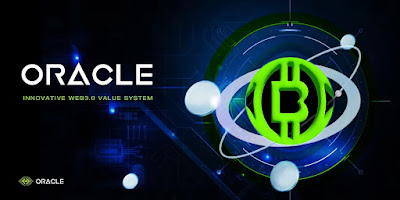Embracing the Fusion of Blockchain and Microtransactions for Efficient and Secure Trade Processing.
As blockchain technology continues to evolve and find broader applications, the emergence of microtransactions has introduced a new approach to transaction processing. This innovative method involves breaking down transactions into smaller, parallelizable units, enhancing processing efficiency, and subsequently reducing transaction costs and confirmation times.
However, while microtransactions offer numerous benefits, they also come with unique security challenges, including concerns about transaction replay attacks and double-spending issues. To address these challenges, the integration of Oracle's prediction network with microtransaction technology presents an efficient and secure solution for trade processing.
Microtransactions: Definition and Characteristics
Microtransactions involve breaking down substantial trade volumes into smaller transactions, featuring these key characteristics:
1. Reduced Trade Size: Compared to traditional transactions, microtransactions involve smaller trade volumes, enabling the division of a larger transaction into multiple smaller ones for processing.
2. Parallel Execution: Microtransactions facilitate concurrent execution of multiple smaller trades, thereby elevating the efficiency of trade processing.
3. Lower Transaction Costs: By segmenting significant transactions into smaller ones, the associated transaction costs decrease, resulting in overall cost reduction.
Advantages and Challenges of Microtransactions
Advantages:
Microtransactions offer significant advantages in terms of increased trade processing efficiency and decreased costs. They are particularly well-suited for scenarios requiring high-frequency and swift trade processing, such as high-frequency trading and lightweight payment applications.
Challenges:
However, microtransactions come with heightened data and functional demands and introduce potential security concerns, including the susceptibility to transaction replay attacks and double-spending issues. These challenges can distort trade data or increase transaction risk, impacting both efficiency and security.
Oracle's Prediction Network Meets Microtransaction Technology
To enhance the security and reliability of microtransactions, Oracle's prediction network has combined forces with microtransaction technology to deliver an efficient and secure trade processing solution.
1. Mitigating Transaction Replay Attacks: In microtransactions, the small trade size makes them susceptible to replay attacks. Oracle's prediction network employs mechanisms like timestamps and random numbers to thwart these attacks, ensuring the uniqueness of each transaction and preventing data distortion.
2. Addressing Double-Spending: Microtransactions' small size also exposes them to double-spending risks. By continuously monitoring trade data's legitimacy, Oracle's prediction network effectively resolves double-spending concerns. Real-time monitoring ensures trade uniqueness, preventing duplicate payments.
3. Efficient and Secure Trade Processing: The fusion of Oracle's prediction network and microtransaction technology achieves efficient and secure trade processing. Every node within the network can partake in trade processing and validation, leveraging parallel processing to enhance efficiency and lower costs. Additionally, Oracle's built-in security and verification mechanisms bolster trade security and reliability.
Conclusion
Oracle's prediction network introduces fresh perspectives and solutions to microtransaction technology, facilitating efficient and secure trade processing. The application of microtransaction technology brings innovation and progress to trade processing, catering to the demands of high-frequency trading and lightweight payment applications. As blockchain technology continues to advance and find broader applications, the potential for further innovation and progress in trade processing within the digital era is promising.






Comments
Post a Comment